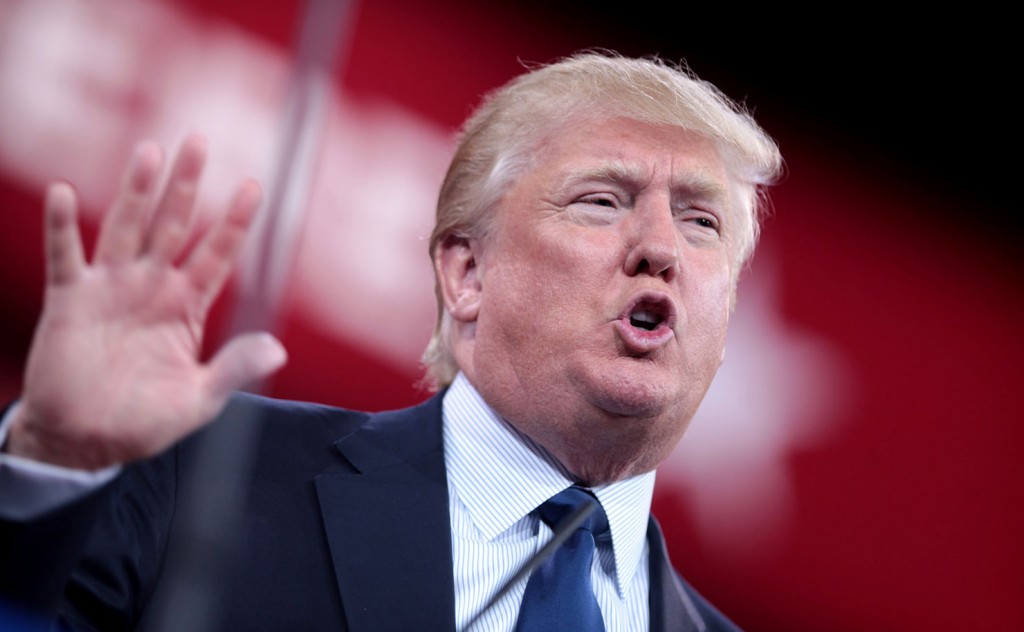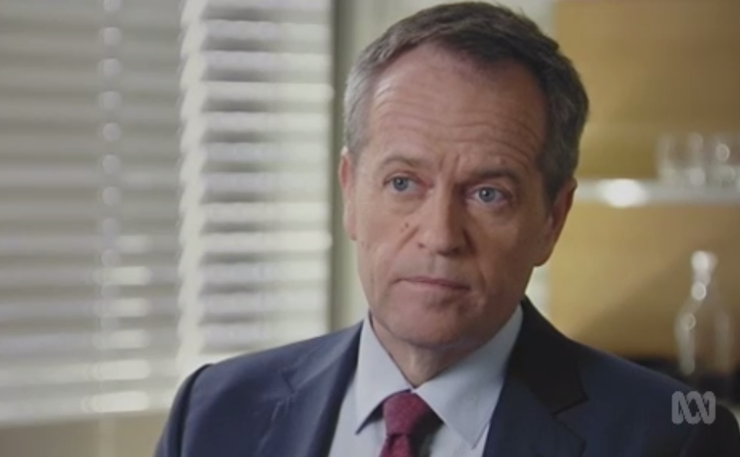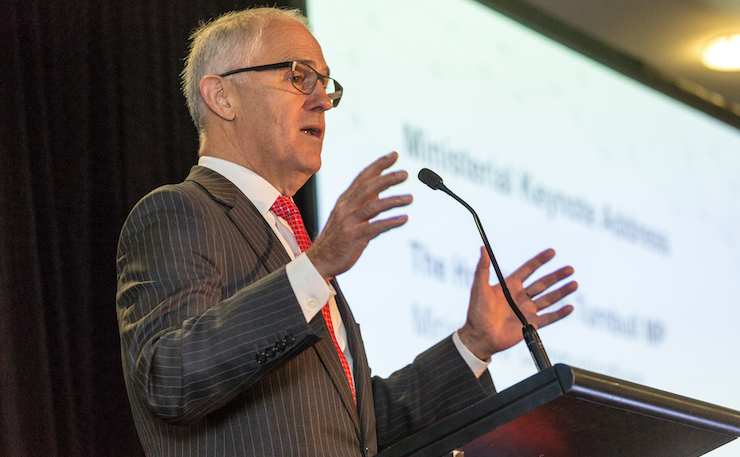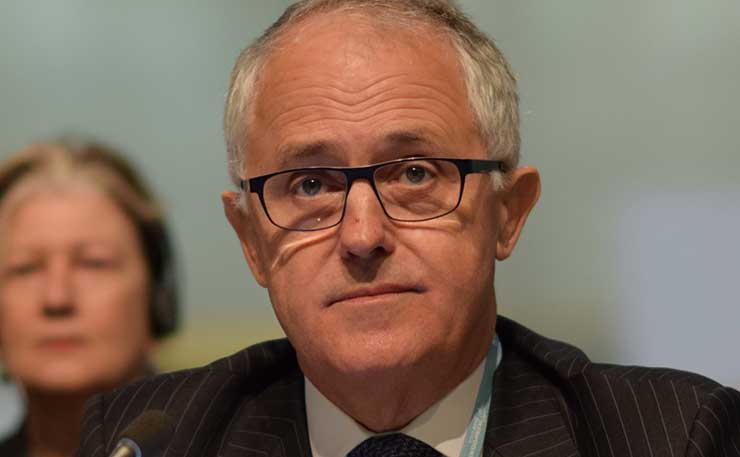In his attack on Opposition Leader Bill Shorten for not supporting the Trans-Pacific Partnership, Prime Minister Malcolm Turnbull is playing into the hands of isolationists and protectionists, writes Ian McAuley.
Earlier this week the Prime Minister tried to resurrect the proposed Trans-Pacific Partnership, a trade and investment deal involving 12 Pacific rim countries including the US, Japan and Australia.
While countries such as Mexico, Chile and Vietnam have been reasonably enthusiastic about the TPP, it has had a difficult run in the US. Even though most analysts believe it would be advantageous to big American businesses, including the tobacco and pharmaceutical industries, it has been stalled in Congress, and its scrapping has been one of Donald Trump’s few consistent election promises.
In Australia, in spite of campaigns by the Greens, Getup and others warning about its adverse consequences it has received little public attention. A 2014 survey by the Australia Institute found that only 11 per cent of Australians had heard anything about the TPP. Now that Trump has raised the issue, a few more people may know there is some proposal floating around, but there is still little public awareness of what is meant by the “TPP”.

This lack of awareness can be put down to the secrecy around the TPP negotiations, its lack of immediacy (it’s been seven years in the making), and the mainstream media’s general inability to address serious issues of economic policy – stories about ministers’ travel rorts and supposedly ruinous budget deficits are much easier to cover.
When the TPP – or as much of it as can be seen through the veil of secrecy – is explained to people, the response is generally negative, because the TPP is no ordinary trade deal of the type that sees countries reduce their tariffs and associated barriers against imports.
Australia has been through that process of trade liberalisation: average tariff support for manufacturing is now a trivial 2.2 per cent, way down from the 30 to 40 per cent rates in the 1960s.
Rather, at the core of the TPP is liberalisation of foreign investment. Of main concern to analysts and the informed public are Investor State Dispute Settlement (ISDS) provisions, which legally privilege the interests of investors over national governments, effectively overriding national sovereignty. It is doubtful, for example, that Australia could have successfully introduced its cigarette plain packaging laws had the TPP been in place.
A particular concern relates to pharmaceuticals, where in the past Australia has been assertive in setting prices under the Pharmaceutical Benefits Scheme on the basis of prices of out-of-patent generic medicines. Big multinational pharmaceutical firms see the operations of our PBS as inimical to their interests, and under ISDS could force us to pay much higher prices for drugs.
There are similar concerns relating to intellectual property generally, including software and entertainment media: would the TPP spell the death of the Australian film industry, for example?

Misgivings about the TPP haven’t been confined to public interest groups. The Productivity Commission, a bastion of economic orthodoxy, has been strongly critical of bilateral and small-group trade and investment deals. It has found that they generally confer little benefit on those countries that sign up to them (one can only guess how they may judge Tony Abbott’s idea for a one-page free trade agreement with Britain, a country with little relevance to Australia’s interests).
In relation to the TPP the Productivity Commission has been critical of its lack of transparency and independent economic evaluation, and on ISDS provisions in particular it has said:
The provisions depart from national treatment principles by affording substantive appeal rights to foreigners not available to domestic firms, risk impeding domestic regulatory reform, include safeguards and carve-outs of uncertain effect, lack transparency and have inadequate parliamentary scrutiny. ISDS provisions also expose the Australian Government to potentially large unfunded contingent liabilities dependent on decisions by international arbitration tribunals.
Yet in spite of public and professional concern about the TPP – indeed a belief that one good thing to come of Trump’s victory is its demise – Turnbull has put it back on the agenda. He mentions the possibility that Trump, the quintessential protectionist, might change his mind, which is about as likely as Cory Bernardi accepting the science of climate change and George Christensen campaigning for same-sex marriage.
Turnbull’s political strategy is to frame Labor’s opposition to the TPP in terms of a turn to populism and protectionism. It is notable that in Turnbull’s criticism of Labor he has emphasised trade, rather than investment, even though the TPP is really about investment.
The case for trade liberalisation is not hard to make. Almost all Australians have benefited from the tariff reforms of the Hawke-Keating Government, which resulted in huge falls in the prices we pay for cars, clothing, footwear and domestic appliances. Of course there is the question of whether the interests of those who paid the price of those reforms – often immigrant workers in manufacturing – have been adequately taken into account, but there are better ways of attending to their interests than making all Australians pay too much for their consumer goods.
The case for investment liberalisation, however, is not so easily made. While the benefits of trade liberalisation flow smoothly to consumers, the immediate benefits of international investment liberalisation flow to foreign corporations. The case for investment liberalisation rests on the dubious theory of trickle-down economics.
Indeed, there can be conflicts between investment and trade liberalisation, and Australia’s industrial history provides a case in point.

In the 1950s and 1960s Australia laid out the welcome mat for foreign manufacturers, most notably auto companies. But those Australian subsidiaries suffered the burden of franchise restrictions imposed by their foreign parents, which meant they were generally prohibited from exporting. We had too many firms serving a limited domestic market.
Had we exercised wiser control over foreign investment it is possible that we may today be celebrating an expansion of a competitive car industry rather than its demise. Also, those flows of foreign finance kept our exchange rate high, to the detriment of all our trade-exposed industries – as well as building up our foreign debt to dangerous levels.
We should be wary of the TPP, because it incorporates some of the worst aspects of globalization. But we do need to chart a path that retains the best aspects of economic openness.
As revealed in the first IPSOS poll for this year, Australian sentiment is turning in the same direction that saw the success of the Brexit and Trump campaigns. Commenting on these findings, David Elliott of IPSOS said, “It seems Australians, more than most, are looking to close the door on globalization.”
Turnbull has done Australia a disservice by framing the issue of globalization around the TPP. And Labor, in its vague response, is failing to draw the distinction between openness in trade and openness in investment.
Both parties are giving opponents of globalization, particularly One Nation, the very opening they need to pursue their protectionist and isolationist agenda.
* Reader’s note: Ian McAuley has written extensively on the Brexit and Trump votes in a series of articles on John Menadue’s blog Pearls and Irritations, and has a consolidated version on his own website.
Donate To New Matilda
New Matilda is a small, independent media outlet. We survive through reader contributions, and never losing a lawsuit. If you got something from this article, giving something back helps us to continue speaking truth to power. Every little bit counts.





